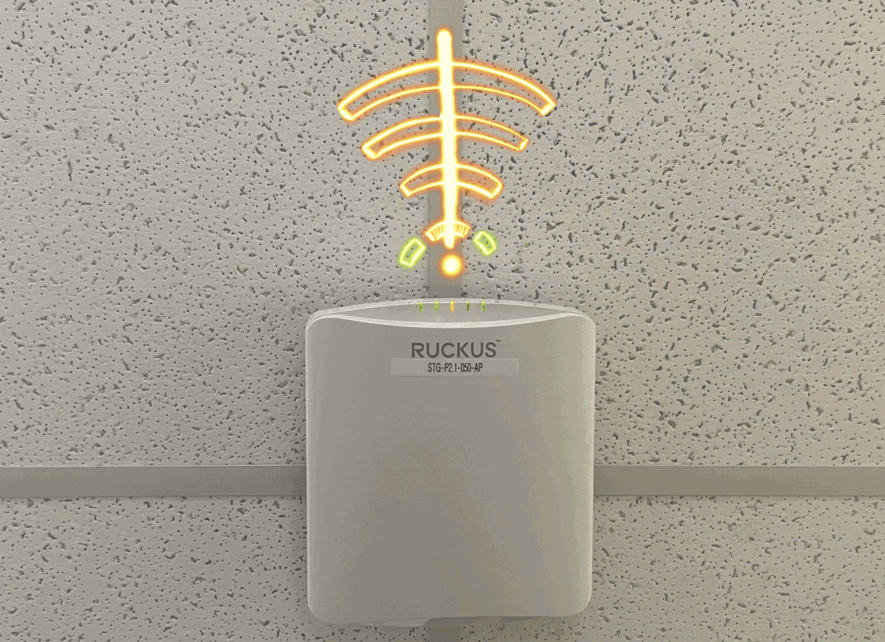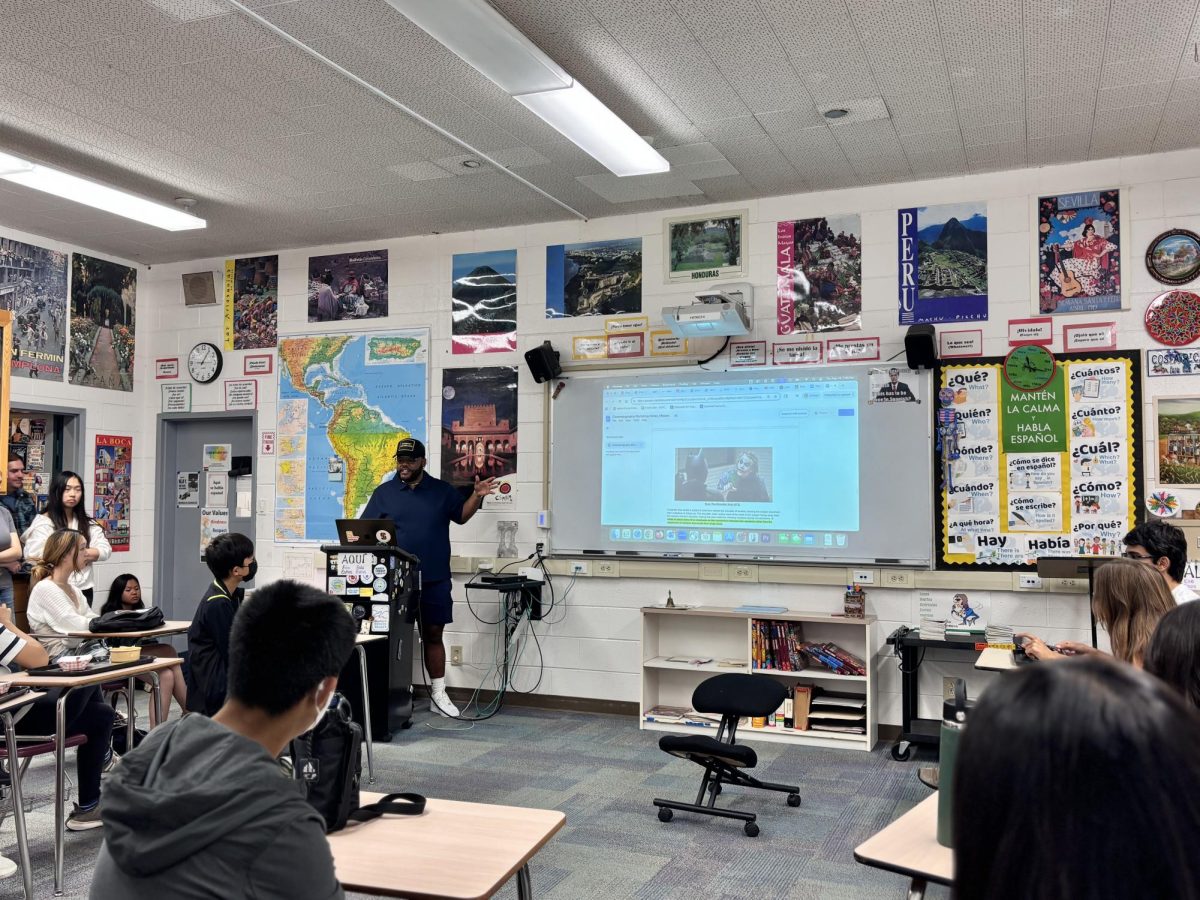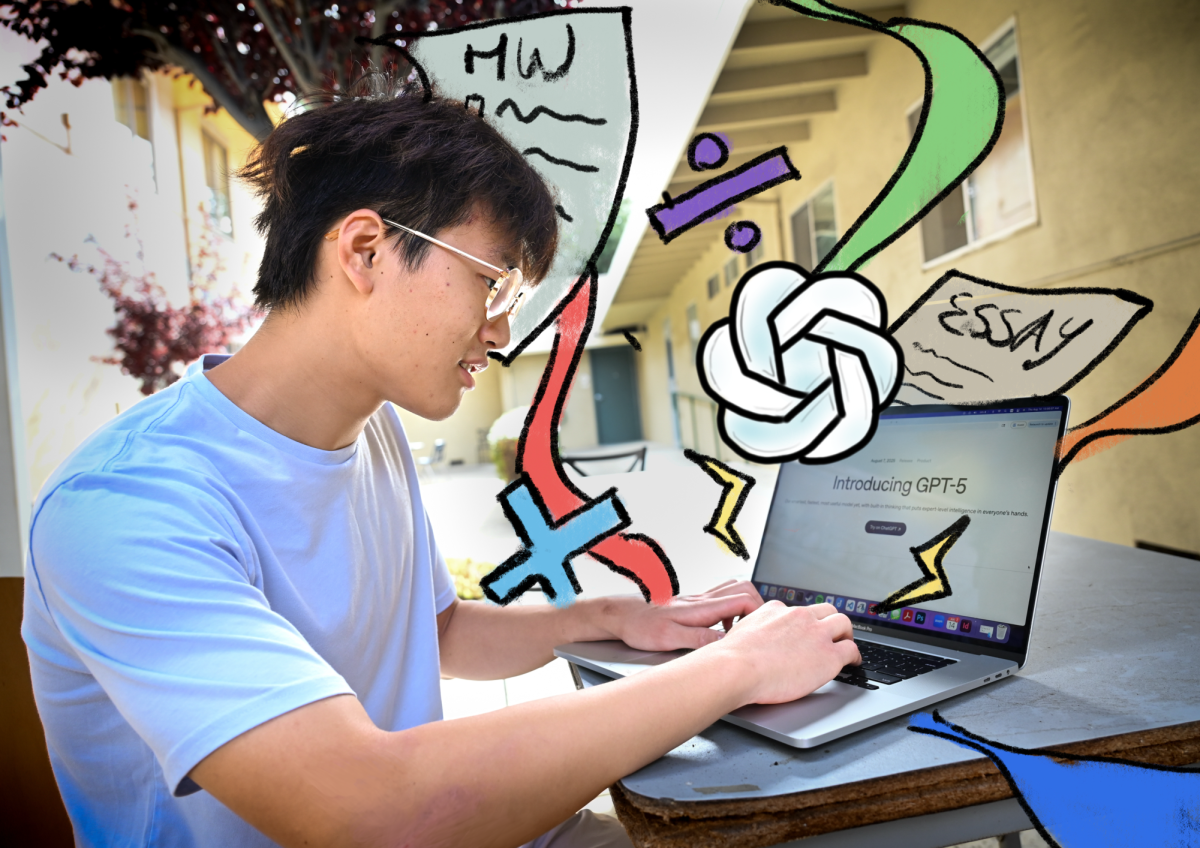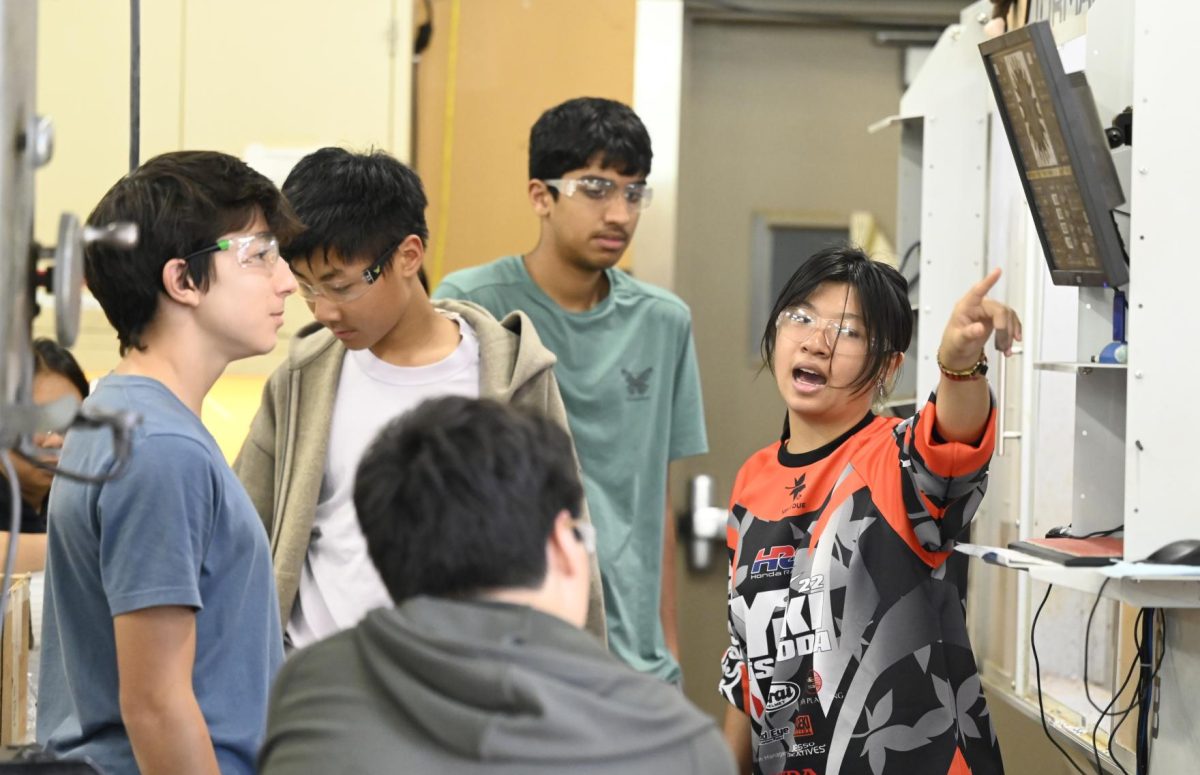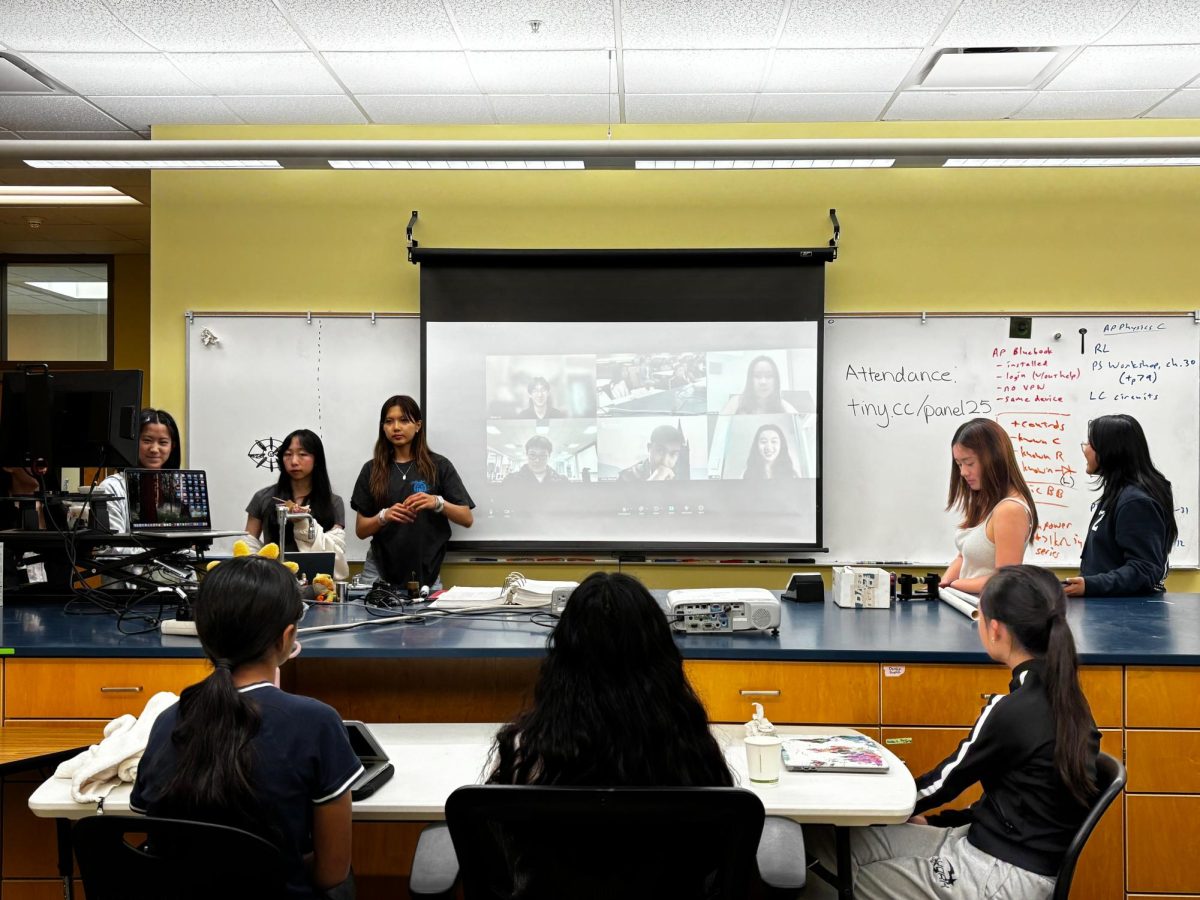For schools located in Silicon Valley, the global center of development and innovation, state-of-the-art technology and facilities play an important role in day-to-day operations. At Harker, it’s no different — to students who use the internet for lessons, assignments and essential platforms like Schoology and the Bell Schedule, a reliable Wi-Fi network is essential to their everyday success.
Members of the community currently have access to three temporary Wi-Fi networks: Harker-Guest for visitors, Harker-Summer for students and Harker-Staff for teachers and faculty. Information technology (IT) staff has been in the process of completely overhauling the internet services on campus over the past few years, replacing old Wi-Fi routers with new Ruckus wireless access points (APs).
“Right now we’re pushing out the networks to our hardware, and after that the computers will start connecting to the new networks automatically,” network administrator Dan Riemer said. “After we take care of all the faculty and staff, instructions are going to come to students with a PDF on how to get into the one network that will be the starting point for everyone.”
The IT team originally hoped to activate the new devices and networks between the end of the Summer Institute and the start of the school year but could not make the switch in time because of the need to install physical devices in classroom ceilings and walls.
“A lot of the changes were the physical installation like putting in new switches and taking out old ones,” Riemer said. “Then you’ve got cabling in the walls for classrooms that didn’t have an access point before, configuring the actual switches and the access points themselves. We also walked with a little antenna to see the signal strength to make sure we didn’t miss a spot and there’s no interference.”
Making the upgrades would require pausing work for students and staff on campus in summer programs, meaning that the team had to perform the installation on weekends and after school.
“We don’t have a whole lot of downtime to make changes like this, so timing has been one of the largest challenges,” Riemer said. “Originally we hoped that when everybody came in at the beginning of the school year we could say ‘Hey, surprise, there’s new networks here!’, but there was just not enough time.”
Students express frustration over slow loading speeds and disconnections while using Wi-Fi networks. Sophomore Selena Chen detailed issues she experienced with the internet connection during class.
“[With] the Wi-Fi last year, I would have days where nothing would load,” Selena said. “In some classes, assignments we had to do would not load. Sometimes Quizlets would not load on my computer, so I’d have to use my phone.”
As part of the upgrades, the IT team installed new APs in every room, ensuring that students and faculty have access to high-quality Wi-Fi at every location on campus. Director of Information Technology Jesse Lara expects increased speeds, coverage and security from the upgraded Wi-Fi networks and a new verification system.
“There’s multiple advantages to the new devices,” Lara said. “Now there’s better security on the actual networks, faster signals and many more access points. We never had coverage outside unless it kind of bled out from the buildings, but we now have outdoor access points all over.”
HarkerDev, the student software development organization, manages multiple student tools including the Bell Schedule and club signups. Due to apprehension over previous Wi-Fi troubles, HarkerDev stopped hosting its services from platforms reliant on the campus Wi-Fi and transferred its applications to the cloud.
“Since our servers were still physically on campus, Harker Wi-Fi was hurting people using our apps,” HarkerDev administrator Daniel Gergov (12) said. “Even when they weren’t on Wi-Fi or on campus, they still would be affected by internet and power outages’ effects on the HarkerDev applications.”
Former HarkerDev administrator Kabir Ramzan (‘24), who helped facilitate the transition to new servers, recognizes that many students have raised issues about internet reliability and hopes to see more widespread coverage throughout the school.
“I know a lot of students have raised issues in the past about the internet being slow at times,” Kabir said. “The internet in some places of campus can be stronger than others due to limited bandwidth, so it could be good that future infrastructure upgrades are focused more on those areas.”


















![“[Building nerf blasters] became this outlet of creativity for me that hasn't been matched by anything else. The process [of] making a build complete to your desire is such a painstakingly difficult process, but I've had to learn from [the skills needed from] soldering to proper painting. There's so many different options for everything, if you think about it, it exists. The best part is [that] if it doesn't exist, you can build it yourself," Ishaan Parate said.](https://harkeraquila.com/wp-content/uploads/2022/08/DSC_8149-900x604.jpg)




![“When I came into high school, I was ready to be a follower. But DECA was a game changer for me. It helped me overcome my fear of public speaking, and it's played such a major role in who I've become today. To be able to successfully lead a chapter of 150 students, an officer team and be one of the upperclassmen I once really admired is something I'm [really] proud of,” Anvitha Tummala ('21) said.](https://harkeraquila.com/wp-content/uploads/2021/07/Screen-Shot-2021-07-25-at-9.50.05-AM-900x594.png)







![“I think getting up in the morning and having a sense of purpose [is exciting]. I think without a certain amount of drive, life is kind of obsolete and mundane, and I think having that every single day is what makes each day unique and kind of makes life exciting,” Neymika Jain (12) said.](https://harkeraquila.com/wp-content/uploads/2017/06/Screen-Shot-2017-06-03-at-4.54.16-PM.png)








![“My slogan is ‘slow feet, don’t eat, and I’m hungry.’ You need to run fast to get where you are–you aren't going to get those championships if you aren't fast,” Angel Cervantes (12) said. “I want to do well in school on my tests and in track and win championships for my team. I live by that, [and] I can do that anywhere: in the classroom or on the field.”](https://harkeraquila.com/wp-content/uploads/2018/06/DSC5146-900x601.jpg)
![“[Volleyball has] taught me how to fall correctly, and another thing it taught is that you don’t have to be the best at something to be good at it. If you just hit the ball in a smart way, then it still scores points and you’re good at it. You could be a background player and still make a much bigger impact on the team than you would think,” Anya Gert (’20) said.](https://harkeraquila.com/wp-content/uploads/2020/06/AnnaGert_JinTuan_HoHPhotoEdited-600x900.jpeg)

![“I'm not nearly there yet, but [my confidence has] definitely been getting better since I was pretty shy and timid coming into Harker my freshman year. I know that there's a lot of people that are really confident in what they do, and I really admire them. Everyone's so driven and that has really pushed me to kind of try to find my own place in high school and be more confident,” Alyssa Huang (’20) said.](https://harkeraquila.com/wp-content/uploads/2020/06/AlyssaHuang_EmilyChen_HoHPhoto-900x749.jpeg)




